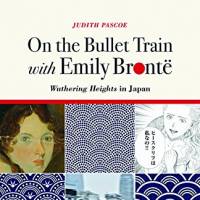Both before and after World War II, Edmund Blunden, a noted English poet and critic, lectured throughout Japan and pronounced the three greatest tragedies in the English language to be "King Lear," "Moby-Dick" and "Wuthering Heights," sparking a fascination with Emily Bronte (1818-48) that has continued to this day.
On the Bullet Train with Emily Bronte, by Judith Pascoe.
176 pages
UNIVERSITY OF MICHIGAN PRESS, Travel.
Here we learn that "Wuthering Heights" has been translated into Japanese 20 times and adapted into myriad forms, from Takarazuka Revue shows to best-selling manga, long-running TV dramas and cinematic outings. Indeed, many Japanese are familiar with the work not directly, but through adaptations that transform the story in distinctively Japanese ways, turning Bronte's moors into a volcanic landscape or the heroine Cathy into a kawaii manga character.
Even small details, such as whether Heathcliff chooses the more formal personal pronoun, watashi, or the more informal boku, can make a significant difference to the way he is perceived and has provoked heated debates amongst Japanese scholars.
While being a scholarly investigation into the reception of a classic of English literature in a foreign culture, the book also reveals itself to a be a personal journey of self-discovery, questioning the academic focus author Judith Pascoe once had, oblivious to narratives beyond a narrowly defined discipline of "English literature."
The book concludes with a lightly humorous description of Pascoe's ongoing existential crisis, probing the reasons for her personal interest in "Wuthering Heights" just as much as Japan's obsession with Bronte.



















With your current subscription plan you can comment on stories. However, before writing your first comment, please create a display name in the Profile section of your subscriber account page.